About
The Data Science for Social Good summer program brings together students, stakeholders, and data and domain researchers to work on focused, collaborative projects for societal benefit.
Our team brought together 7 people from around the U.S., see below for who we are and what we do.
Minimum Wage DSSG Team
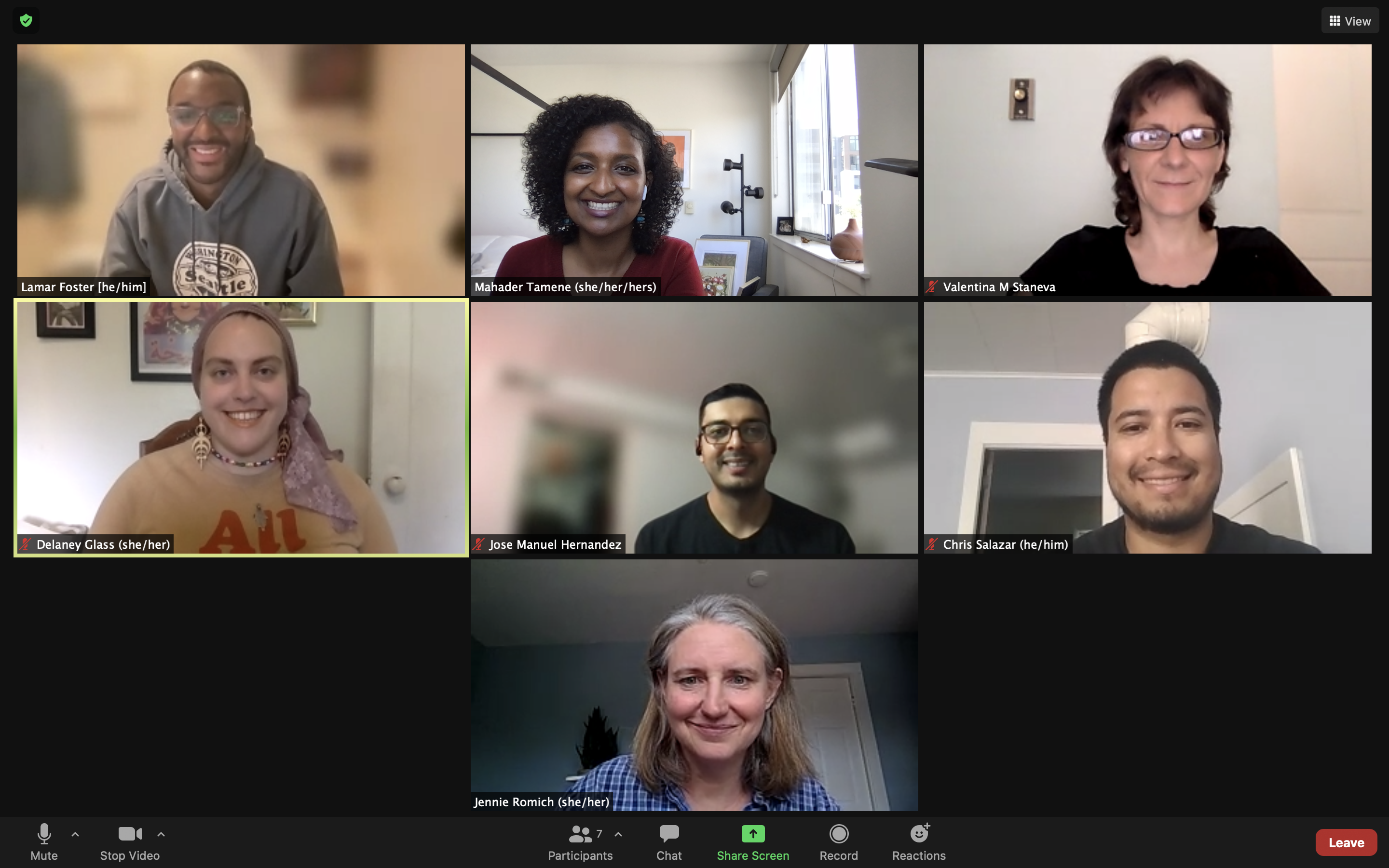
Individual Bios
Jennie Romich, Project Lead

Jennie Romich is a Professor of Social Welfare at the UW School of Social Work and Faculty Director of the West Coast Poverty Center. Romich’s research focuses on poverty, low-paid workers, and families’ interactions with public policy. Her recent projects include mixed-method evaluations of the Seattle Paid Safe and Sick Time Ordinance and $15 minimum wage. She co-leads the national effort on “Reducing Extreme Economic Inequality” for the American Academy of Social Work & Social Welfare’s Grand Challenges Initiative and co-chairs a national research network on “Poverty, Employment, and Self-Sufficiency” through the U.S. Collaborative of Poverty Centers.
As the principal investigator of the Washington Merged Longitudinal Administrative Data, Romich is excited to work with the DSSG summer project as a way of learning about data science techniques applicable to large-scale administrative data set. She looks forward to answering some heretofore unanswerable questions about residential mobility and poverty policy.
Jose Hernandez, Data Scientist

Jose Hernandez is a senior data scientist at the University of Washington’s eScience Institute. He received his BA from the University of California, Irvine in Social Ecology (2001-2006) and his Ph.D. in Educational Measurement and Statistics from the University of Washington where he studied the application of causal inference methodology in the absence of randomization on complex data structures (2010-2015).
Jose has worked most of his career in the social science/education data science research space. My current work focuses on applying machine learning methods to extract novel data sources from large administrative data sets that are used to inform policy making in education and housing.
Jose’s research and data science project interests are informed by his lived experiences as a first generation high school graduate raised in a Latinx immigrant community in South Central Los Angeles and Santa Ana, CA. Jose is excited for the opportunity to participate in DSSG and learn about the impacts of minimum wage policies locally, as well as the opportunity to collaborate with this year’s fellows.
Valentina Staneva, Data Scientist
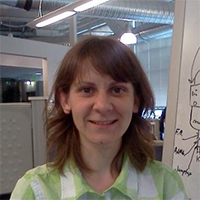
Valentina Staneva is a Senior Data Scientist at University of Washington’s eScience Institute. As part of her role she collaborates with researchers from a wide range of domains on extracting information from large datasets such as images and time series. She regularly teaches data science skills and best practices for reproducible research to diverse audiences. Valentina holds a Ph.D. in Applied Mathematics & Statistics from Johns Hopkins University with a focus on computer vision, and previously worked at Los Alamos National Laboratory on problems in imaging, optimization and compressed sensing.
James Lamar Foster, DSSG Fellow
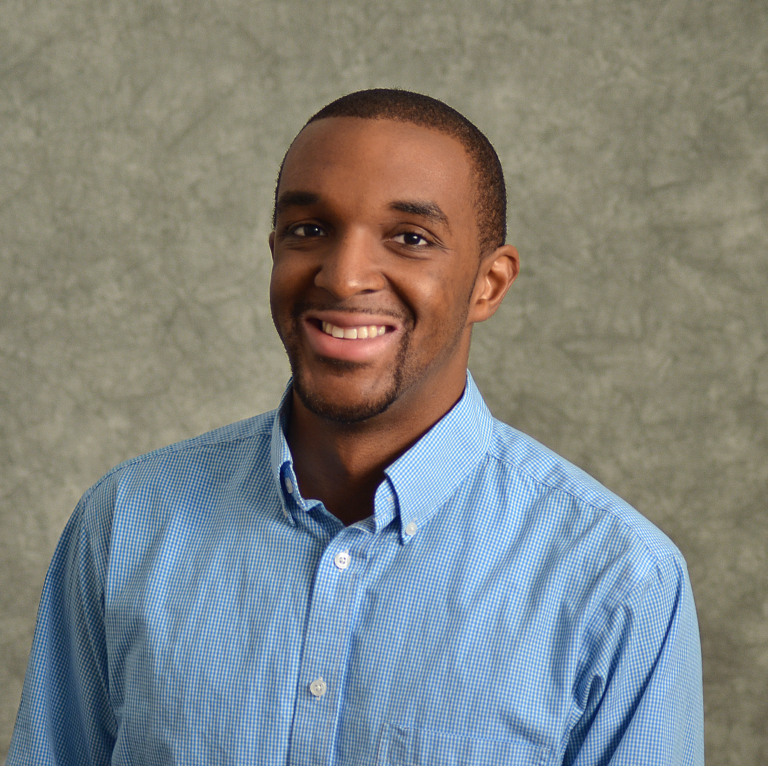
James Lamar Foster is a Ph.D. Candidate at The University of Washington’s Education Policy, Organizations, and Leadership program in the College of Education. His work investigates questions at the intersections of race, place, policy, and practice. His current research uses analytical approaches from critical and organizational theory in concert with computational methods to understand how school leaders create conditions to foster marginalized students’ social-emotional development. Lamar has been interested in the work of DSSG fellows since arriving at the University of Washington. Their focus on computational methods and social good piqued his interest, which prompted him to apply. He is particularly excited to work on the Geography, Equity, and the Seattle $15 minimum wage ordinance project, which explicitly focuses on equity, policy, and place. In his free time, Lamar enjoys spending time with friends and family and watching Manchester United F.C.
Delaney Glass, DSSG Fellow
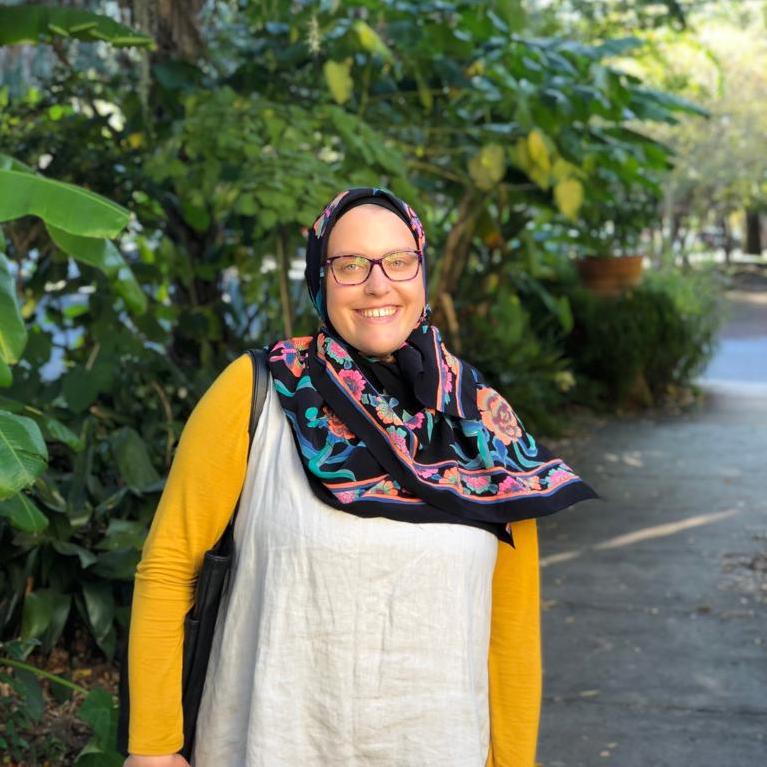
Delaney Glass is a 3rd year Ph.D. student in Biological Anthropology at UW. As a human biologist and anthropologist, her work probes the effects of and variation in biologically measured and perceived stress among children and adolescents. She utilizes mixed methods and interdisciplinary approaches from evolutionary biology, cultural anthropology, and social epidemiology. Her current research utilizes previously collected and archived biological samples from the Chaco Area Reproductive Ecology Program to understand neuroendocrine variation across early to mid-puberty among indigenous Qom girls living in Argentina. Additionally, her proposed research in Amman, Jordan will focus on how global-local dynamics, intraindividual variation in cultural consensus, and adolescent stress interact with the timing, tempo, and hormonal variation in early to mid-adolescence. She is passionate about transparent and reproducible research and utilizing qualitative and quantitative data. In her free time, she enjoys speaking Arabic, gardening, cooking, and reading.
Christopher Salazar, DSSG Fellow

Chris is an incoming PhD student in Industrial and Systems Engineering at the University of Washington. Prior to returning to academia, Chris worked as a structural engineer where he primarily worked on disaster response work upon the aftermath of catastrophic events such as Hurricane Harvey, Hurricane Maria, earthquakes in Mexico/Alaska, and other similar events. This type of work has carried into working in the Disaster Data Science Lab (UW) where he developed an algorithm to estimate distance in images between pedestrians for adjudicating social distance compliance. He is excited and humbled by the prospect of working with other DSSG fellows, data scientists and project leads on the “Geography, equity, and the Seattle $15 minimum wage ordinance” project. It will present an excellent opportunity to collaborate with other subject matter experts to provide a holistic evaluation of the research project. I expect the connections and lessons learned as a DSSG fellow will influence my future work in academia as well as community engagement opportunities.
Mahader Tamene, DSSG Fellow
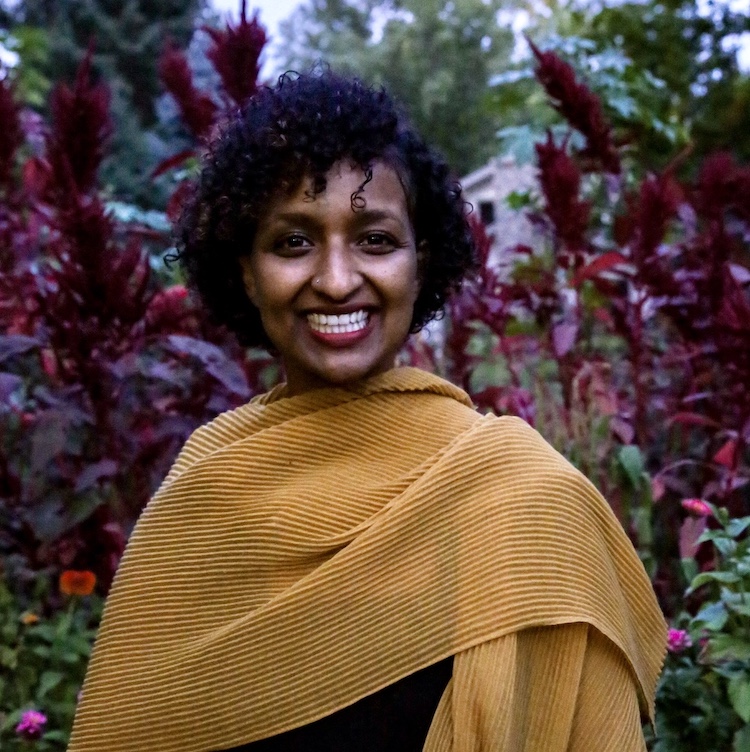
Mahader Tamene (she/her/hers) is a PhD student in the Division of Epidemiology at UC Berkeley’s School of Public Health. A public health scholar dedicated to advancing health and justice in underserved and historically marginalized communities globally, her research focuses on maternal and child mental health disparities, particularly community-based interventions that address the structural drivers of these disparities. She envisions research that translates beyond academia to change the world around us. She believes interdisciplinary, reflective, and transformative leadership is necessary for this change. Mahader has worked in community health education, health research, program implementation and evaluation both domestically and abroad. She holds an MSc in global health and population from Harvard T.H. Chan School of Public Health and a BA in public policy and African/African-American studies from the University of Chicago.
Contact Us
Feel free to contact us via our respective websites for any feedback or questions.
Other Resources
You can learn more about the project by clicking on this link here
Acknowledgements
The Minimum Wage team is thankful for the support of the University of Washington’s eScience Institute, Micron Foundation, and Washington State Department of Social and Health Services.